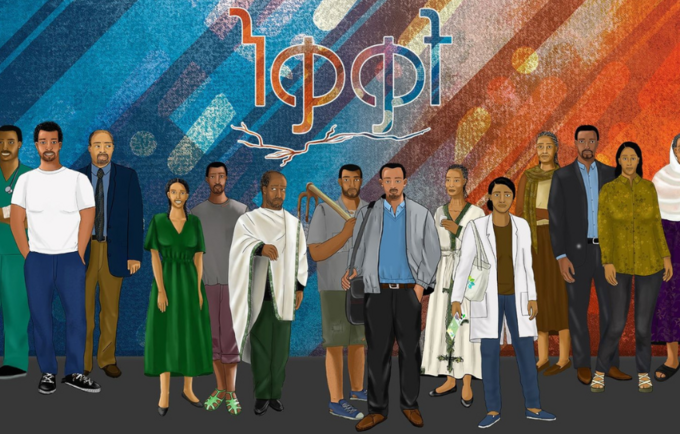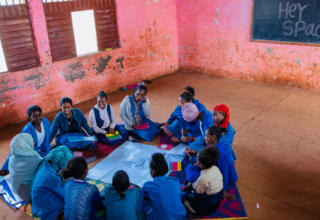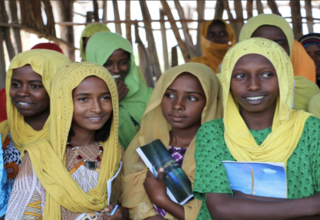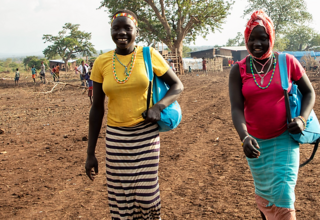Between 2020-2022, three national and FM radio stations broadcasted the Nekakat Serial Drama weekly. The magazine format drama broadcasted 338 episodes over the years, reaching 2,340,302 (1,167,811 men, 1,172,491 women).
The drama was based on characters that navigate life with strength and humor. It challenged social norms and harmful practices such as FGM and child marriage, to change the narratives around them.
Population Media Center, supported by UNFPA with funding from Canada, produced the drama.
"The drama changed my views about gender."
Addisalem Wogayehu, 18, is from Awash Melkasa, Oromia. He was a regular listener and enjoyed the entertaining approach to critical issues.
"Bullying and harassment of girls in schools and the village were common. It was a norm among young boys and cool. The drama shows the adverse effects of bullying and harassment. I believe boys are learning to be considerate, and girls are standing up for their rights. I was encouraged by the drama messaging to join the youth group. I contributed to creating a safe environment for all," he said.
Addisalem aspires to be a role model for youth. He hopes radio serial dramas return with increased coverage and diversify in language and medium.
"Nekakat got the attention of Yejube youth"
Endawoke, 24, from Yejube town in Baso Liben Woreda, Amhara region, listened to Nekakat drama on National Radio. The stories in the episodes and the skill and capability of characters involved in the serial drama motivated Endawoke to keep listening. “The drama is informative and the issues are addressed with an entertaining storyline. That is why Nekakat got the attention of Yejube town youth," he said.
''The drama has reduced child marriage and female genital mutilation in Yejube town. It encouraged a conversation among friends and families about the negative consequences of child marriage and gender-based violence," he added.
''I was a child bride myself, and the story speaks to me''
Abezu is a renowned maker of Tella (local beer) in her village, Aneded Woreda, in the Amhara region. 'Nekakat drama' was a favorite of her and her customers at Tella Bet.
She said she loved the drama.
"I got married at 14, and my story is similar to Tenaye's. She was my favorite character, and I sometimes asked if she was telling my story. I married early, circumcised, and now am a single mother. From Nekakat, I learned that all these things have happened to many Ethiopian girls and that I am not alone. I also learned to protect my daughter from a similar fate.”
''I used to agree with all social norms, but the drama challenged my views,''
Workie became a regular listener because she felt Nekakat was based on real-life experiences.
As a disabled and single mother, Workie chose isolation. ‘Nekakat’, she says, has given her confidence to socialize more. “I sometimes listened to the drama twice as I had to rehearse it to understand the message and share it with my community.”
Workie's community respects elders and tradition. However, she began to challenge the norm based on the information and reasoning she got from the drama. Especially about child marriage and female genital mutilation, Workie couldn't be silent.
“I used to support socially accepted practices such as child marriage and female genital mutilation. The negative impacts have now become clear to me. Not only do I strongly disagree, but I am vocal,” she said.




